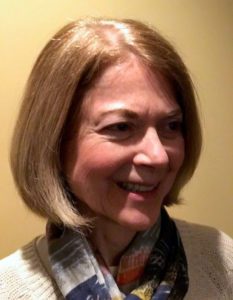At the League of Education Voters (LEV), we recognize all of the hard work that you do toward improving public education across Washington state. We are pleased to announce our Activist of the Month for May: Elaine Woo. Read about her experience as a strong advocate for science education and fair funding.

Elaine Woo works with conviction for the children of Washington state. She speaks to legislators in Olympia, visits schools, advocates through phone calls, and recently co-wrote an Op-ed for the Seattle Times.
Elaine became connected with LEV when she received an email about a Lunchtime LEVinar. Soon afterward, she met LEV state field director Kelly Munn at an activist training event, which put Elaine on a path to talking with lawmakers. “I started calling and visiting my legislators as well as writing letters,” she recalls. “It’s great how LEV helps people find a way to have a voice.”
Elaine taught elementary school for 3 years in California before heading to Okinawa to teach for a year with the Department of Defense. She then spent the next 33 years with Seattle Public Schools (SPS), with the exception of a year teaching highly capable education with Seattle Country Day School. Upon returning to Seattle Public Schools, she taught in the Accelerated Progress Program (APP) as well as in the regular classroom for the next 12 years.
After Elaine became the assistant principal at Bryant Elementary in Seattle, she was asked to help parents develop a science program for the school. She says, “Some of the parents told me that every child in Seattle needs a good science education, not just in this school.” Soon afterward, Elaine was approached by Valerie Logan, the wife of noted biologist Dr. LeRoy Hood. Both Logan and Hood took major leadership in helping the Bryant School community and the entire district apply for a grant from the National Science Foundation (NSF). With the NSF grant, other grants, and district funds, the professional development program was continually developed and implemented for 16 years providing researched-based professional development for elementary teachers.
Elaine worked as an assistant principal at Bryant and then principal at John Rogers Elementary for about six years before leading the grant efforts for science teacher professional development in the Seattle Public Schools central office. “The experience taught me about change,“ she explains. “There are certain areas where each of us just doesn’t want to change.” She learned that making policies stronger is difficult but crucial. Elaine adds, “If policies are better and more supportive, then teachers can do better for their students.”
She has a big issue with elementary science, because there is so much pressure to focus on literacy and math that principals and/or teachers in Washington are left to decide whether or not science will be taught. Elaine says, “It’s too late for many students if you wait until middle school for full-year science.” She also likes the concept of ensuring that students can pass a science assessment before leaving high school. Elaine believes that if a biology assessment, for example, is required for graduation, it sends a message to the students that they need to work harder. She says, “Adults find excuses not to include a science test for graduation. People cling to those barriers, maybe because it’s less work, which is tragic for kids.”
Elaine’s philosophy is that if a teacher has high expectations, participates in research-based professional development, and provides effective support, then students will achieve better. Outside the classroom, our kids need good instruction and support at home, as well. She also weighs in on the McCleary education funding debate. She says, “The accountability portion of McCleary is really hard, but it’s really important.” She notes that there has to be support from superintendents, principals, and parents for raising the bar. “Legislators are walking a fine line,” she explains. “We need to thank them for their hard work.”
On LEV, she says, “The work LEV is doing is fantastic – helping parents and students find information outside of the system.” And when judging her own efforts on behalf of Washington kids, Elaine humbly says, “I don’t do enough, and I’d like to do more.”